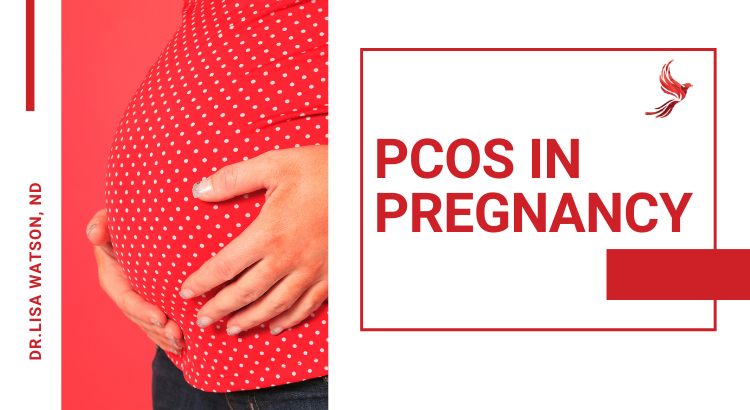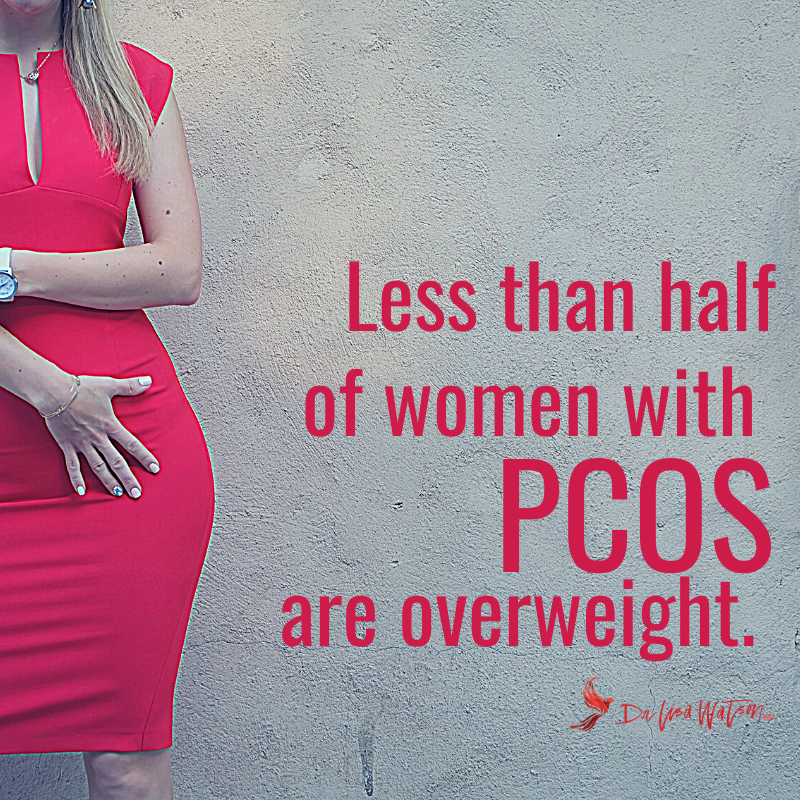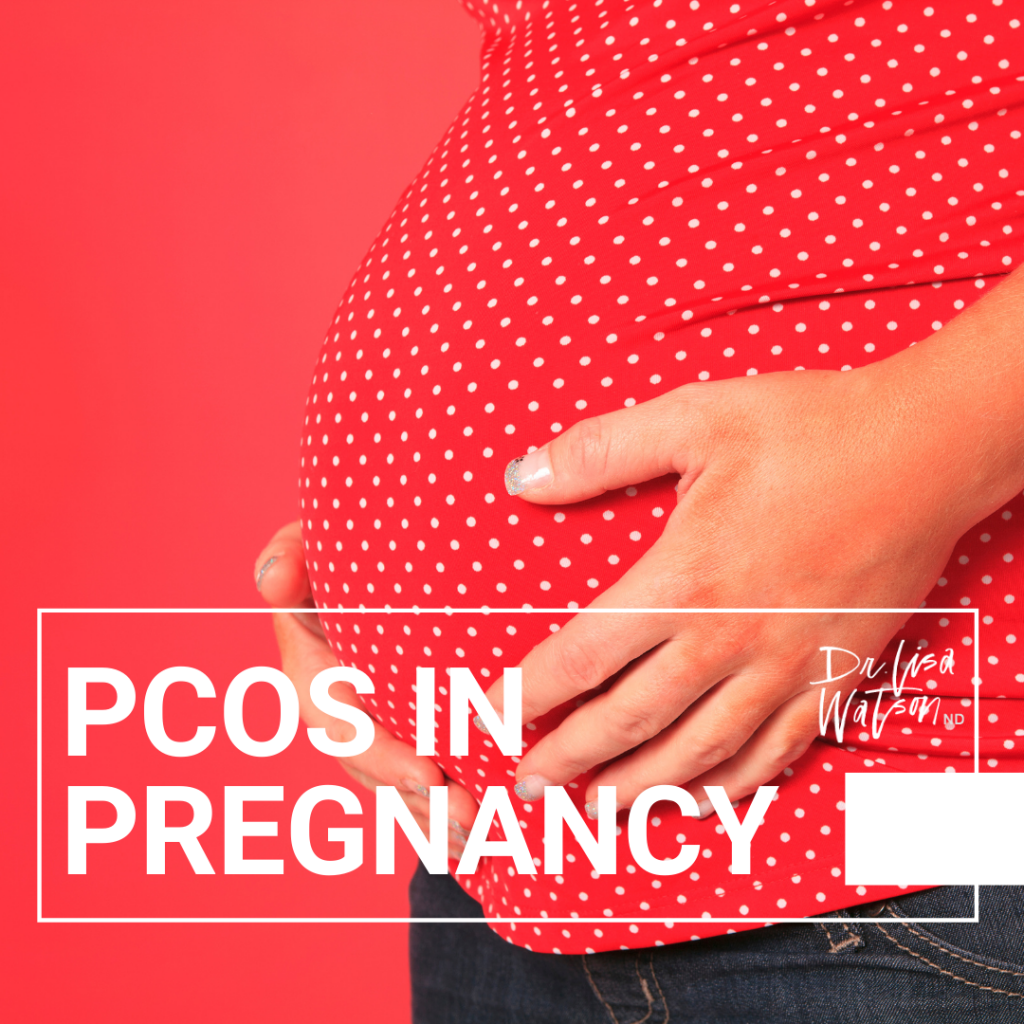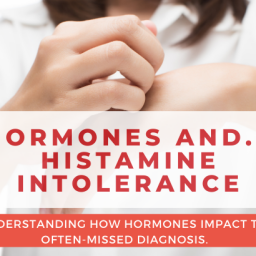
Many women with PCOS are told they will struggle to get pregnant. And while that can be true, few women with PCOS are told WHAT to expect when they are expecting.
PCOS is different for every woman. It is an error to make sweeping assumptions that all women with PCOS will have similar symptoms, struggles and results. We need to look at each individual woman with PCOS (each Cyster, if you will) and determine her unique concerns and develop plans to benefit her, through her years prior to and after pregnancy, through fertility and each pregnancy.
What We Know About PCOS and Pregnancy
For women with PCOS the first obstacle is often getting pregnant. PCOS is characterized by cycles of anovulation – a cyst forms when a follicle does not rupture at ovulation and no egg is released. When women with PCOS are able to ovulate, they are able to conceive.
But PCOS has impacts in pregnancy as well. For women with PCOS they are at increased risk for early miscarriage, gestational diabetes, high blood pressure, preeclampsia, preterm delivery, babies that are either small or large for their gestational age, and a lower APGAR score at birth. Our Cysters need this information, and our doctors need to support women with PCOS differently during pregnancy, maintaining greater awareness for these potential concerns, and supporting women with healthy lifestyle advice and additional support when needed.
PCOS and Early Miscarriage
In one of the great injustices in life, women with PCOS have a much higher risk of early pregnancy loss – studies estimate up to 30-50% of women will experience a miscarriage in the first trimester, compared to 10-15% of women without PCOS.
Why is that?
Well, there are a few theories. First, women with PCOS are more likely to have used ovulation inducing drugs, and these are associated with a higher incidence of miscarriage than occurs with natural, spontaneous ovulation.
High levels of androgens (male pattern hormones) may be another cause of the increased incidence of miscarriage in PCOS. Studies have found they can predict the risk of miscarriage based on high testosterone ratios. Unfortunately high testosterone can compete with estrogen, and estrogen is necessary for development of the uterine lining and successful implantation.
Other factors include high plasminogen activator inhibitor-1 (PAI-1) activity for women with PCOS that can lead to blood clots during the development of the placenta, low levels of cell adhesion molecules like B3 integrin (necessary for implantation), and insulin resistance associated with impaired egg development and uptake of glucose during early development (poor glucose uptake can lead to spontaneous breakdown during the blastocyst phase.)
PCOS and Gestational Diabetes
While blood sugar levels rise for all women in pregnancy, to allow extra nutrients to reach the developing fetus, the insulin resistance that many women with PCOS have can leave them at greater risk of gestational diabetes. Now, not every study has found this to be the case, and this reminds us that PCOS comes in many different forms – not every woman with PCOS is insulin resistant and at greater risk for diabetes. Not every woman with PCOS is overweight – in fact nearly half of women with PCOS are not overweight.

PCOS and High Blood Pressure in Pregnancy
Around 8% of women with PCOS will develop high blood pressure in pregnancy. Some studies have also found an increased risk for preeclampsia – but again, this may be due to the fact that women in the study with PCOS were also overweight. We need to be looking at what outcomes PCOS as a metabolic condition have, not just at what outcomes are associated with a woman’s body size.
PCOS and Preterm Delivery
While between 6-15% of women with PCOS may deliver early, and may have babies of smaller birth weight, some studies have found that there is a correlation, and others have not. Ultimately I feel like we need more research on this before we make any conclusions.
Supporting Women with PCOS in Pregnancy
I find it incredibly rewarding working with women who have PCOS, no matter where they are on their reproductive timeline. Whether they are teens just learning about their hormone cycles, women in their 20s coming off birth control for the first time in years, women in their 30s choosing to start a family, or choosing NOT to start a family, or women in their 40s who have PCOS and are experiencing perimenopause at the same time.
And one of the most important things I can say about PCOS is this – not every case of PCOS is the same. Not every woman with PCOS is overweight, or has insulin resistance, or has acne or has to pluck her mustache. We are all different.
So there really is no ONE way to support PCOS. There is no ONE approach that works for every woman. For a pregnant woman with PCOS, my advice is the same – understand your individual needs, your individual risks in pregnancy, and tailor your plan to you.
For all women, with PCOS or not, the foundation of a healthy pregnancy is the food we eat, the way we move our bodies, and the thoughts we hold. So we start there. Do you need higher protein to improve insulin resistance? Do you need moderate carbs? Less carbs? More carbs? Do you need higher vitamin D levels? Do you need more chromium? We don’t know until we understand who you are and what your needs are.
Got questions? Want to talk? Reach out. I’m here for you.
Disclaimer
The advice provided in this article is for informational purposes only. It is meant to augment and not replace consultation with a licensed health care provider. Consultation with a Naturopathic Doctor or other primary care provider is recommended for anyone suffering from a health problem.

Selected References
Aksoy S, Celikkanat H, Senöz S, Gökmen O. The prognostic value of serum estradiol, progesterone, testosterone and free testosterone levels in detecting early abortions. Eur J Obstet Gynecol Reprod Biol. 1996;67:5–8.
Haakova L, Cibula D, Rezabek K, Hill M, Fanta M, Zivny J. Pregnancy outcome in women with PCOS and in controls matched by age and weight. Hum Reprod. 2003;18:1438–41
Kamalanathan S, Sahoo JP, Sathyapalan T. Pregnancy in polycystic ovarian syndrome. Indian J Endocrinol Metab. 2013;17(1):37-43
Kjerulff LE, Sanchez-Ramos L, Duffy D. Pregnancy outcomes in women with polycystic ovary syndrome: A metaanalysis. Am J Obstet Gynecol. 2011;204:558. e1-6
Metwally M, Ong KJ, Ledger WL, Li TC. Does high body mass index increase the risk of miscarriage after spontaneous and assisted conception. A meta-analysis of the evidence? Fertil Steril. 2008;90:714–26.
Mikola M, Hiilesmaa V, Halttunen M, Suhonen L, Tiitinen A. Obstetric outcome in women with polycystic ovarian syndrome. Hum Reprod. 2001;16:226–9.
Okon MA, Laird SM, Tuckerman EM, Li TC. Serum androgen levels in women who have recurrent miscarriages and their correlation with markers of endometrial function. Fertil Steril. 1998;69:682–90.
Roos N, Kieler H, Sahlin L, Ekman-Ordeberg G, Falconer H, Stephansson O. Risk of adverse pregnancy outcomes in women with polycystic ovary syndrome: Population based cohort study. BMJ. 2011;343:d6309.
Wang JX, Davies MJ, Norman RJ. Polycystic ovarian syndrome and the risk of spontaneous abortion following assisted reproductive technology treatment. Hum Reprod. 2001;16:2606–9.
















